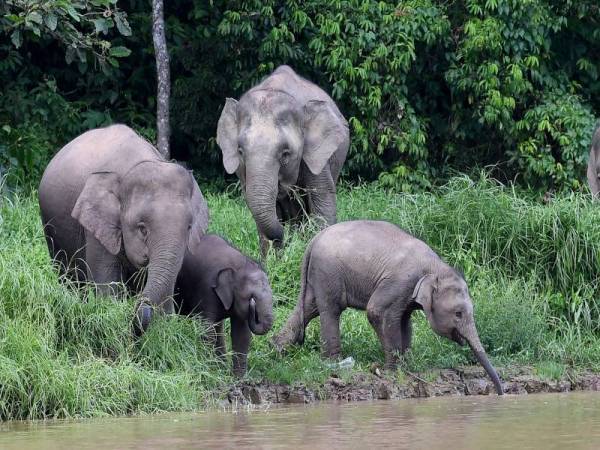Sabah committed to protecting Borneo’s 'gentle giants'
"Our elephants are at risk of extinction, which is a significant warning for us."

KOTA KINABALU - The Sabah government is committed to protecting the Bornean Elephant, ensuring that these gentle giants are preserved for future generations and remain an indelible heritage of the state.
Sabah Tourism, Culture, and Environment Minister Datuk Christina Liew highlighted the alarming classification of the Bornean Elephant as endangered under the International Union for Conservation of Nature (IUCN) Red List and emphasised that all efforts are being made to protect this beloved species.
Liew said the state government's Sabah State Elephant Action Plan, a comprehensive strategy from 2020 to 2029 aimed at safeguarding the elephants and a key initiative in this plan is the Elephant Corridor Project near the Kinabatangan River.
"Our elephants are at risk of extinction, which is a significant warning for us. We need to act quickly to protect them. We will be discussing the corridor project with the Wildlife Department to expedite its implementation. I don’t want it to be delayed until next year or beyond.
"It is our responsibility to protect our very own Bornean elephant," she told a press conference after launching the Sabah-Malaysia My Second Home (Sabah-MM2H) here recently.
Last month, it was reported that the Bornean elephant, or Elephas maximus borneensis, has been classified as ‘endangered’ under the IUCN Red List due to its small and declining population. According to IUCN, there are approximately 1,000 Bornean elephants, with about 400 being breeding adults.
The Bornean elephant, also known as the Borneo pygmy elephant, is a subspecies of the Asian elephant (Elephas maximus). Native to Sabah and parts of Kalimantan, Indonesia, they are distinguished by their smaller size, with males reaching around 2.5 metres in height.
Liew said that under the Sabah State Elephant Action Plan, the ministry is in discussions to plant elephant food as part of wildlife and nature preservation efforts, particularly for the Elephant Corridor Project.
She added that generous individuals in Sabah have donated land to the Wildlife Department for the corridor project, and grass experts have been appointed to plant grass to increase food availability for the elephants.
As Napier grass is one of the favourites for the Bornean elephant, Liew said efforts are being made to plant this grass over a large area in Kinabatangan, the main habitat of the elephants.
"This will help avoid human-elephant conflicts. If elephants know where to find food along the Kinabatangan River in the designated elephant corridor, they will be less likely to enter oil palm plantations or villages," she said.
Liew said that once the corridor is established along the Kinabatangan River, it will take about six months to a year to resolve the conflicts between humans and elephants in that area.
She said the creation of the elephant corridor will also become a new attraction for tourism projects, adding that the Kinabatangan area is already well-known to foreigners who visit for its wildlife, such as orangutans, crocodiles and proboscis monkeys.
"We urge everyone to join hand with us the state government to protect our very own gentle giants,” she said. - BERNAMA










